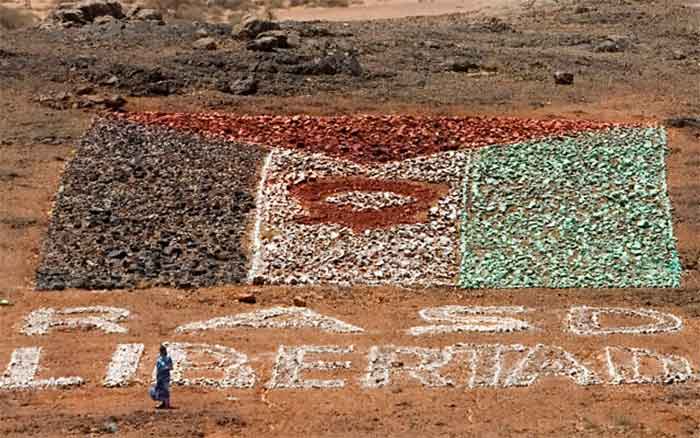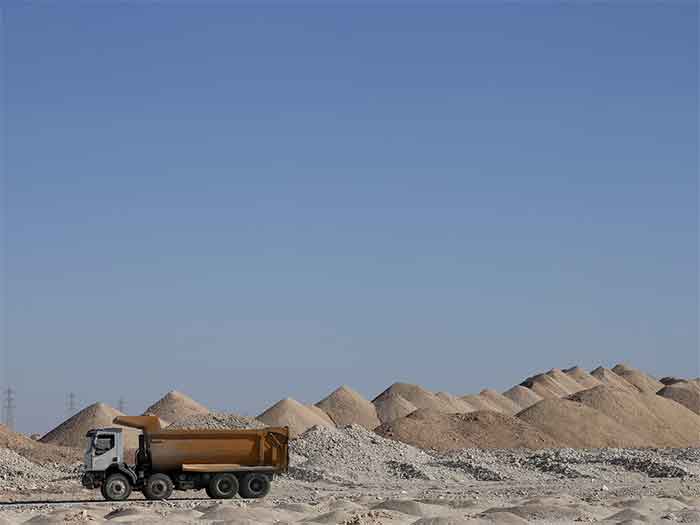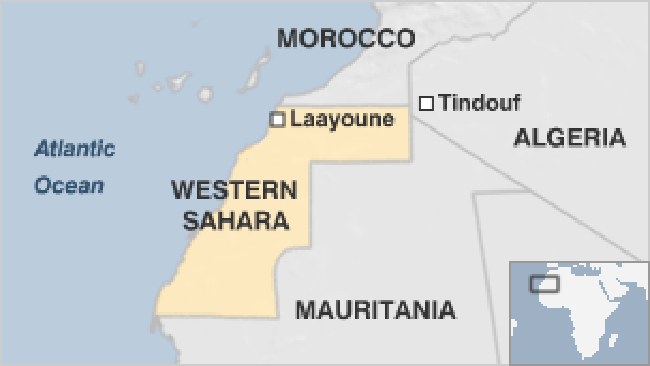
The Trump administration just officially recognized Morocco’s sovereignty over the entire Western Sahara region and like clockwork, the relics of colonial machinations stick out like a sore thumb in, yet another region of Africa divvied up during the Berlin Conference. By 1975, in the wake of independence movements across the African continent, Spain had withdrawn from the Spanish Sahara, a region now regarded as Western Sahara. The conditions revolving around Morocco’s independence from France and regional aspirations for autonomy brought a condition where the Sahrawi -the indigenous people of the Western edge of the Sahara- still seek to establish self-determination in the form of the Sahrawi Arab Democratic Republic (SADR) as proclaimed by the Polisario Front, a liberation movement recognized by the United Nations which maintains Sahrawi self-determination as a central tenet.
Following a cease-fire between SADR and Morocco brokered by the United Nations in 1991, the Kingdom of Morocco has de-facto claimed sovereignty over Western Sahara and with uncanny consistency, the conflict, like many around Africa has an economic angle vis-a-vis the large deposits of phosphate and gas as well as access to the fishing waters of the North Atlantic. Unfortunately, the referendum on Sahrawi self-determination has been repeatedly postponed because of central disagreements as to electorate composition and the status of the region according to a report by Aljazeera.
With the SADR-Morocco situation as context, Tel Aviv has spent most of the year 2020 securing official reconnections of diplomatic relationships with mostly Arab countries of West Asia and more recently a mounting number of African countries. With the Abraham Accords as a springboard of sorts, Israel’s diplomatic reputation is essentially being laundered through assertions of diplomatic re-engagement by governments that will -in a few words- turn a blind eye to the dire conditions experienced by the Palestinian people in Gaza and the West Bank. In October 2020, Sudan had agreed to pay $335m as reparations to the United States Government for alleged involvement in the 1998 bombing of U.S embassies in Kenya and Tanzania and as a prerequisite to being taken off the list of ‘state-sponsors of terror’. Furthermore, Sudan had agreed to re-establish official diplomatic relations with Israel seeing that both countries fought wars against each other in 1948 and 1967. Aside from Sudan, Morocco is the fourth country since August 2020 to normalize relations with Israel in addition to the UAE and Bahrain according to reporting by Aljazeera while Chad and Mali have done similar with Malawi strangely vowing to be the first African country to open a diplomatic mission in Jerusalem.
It will be naïve to ignore the heavy hand of U.S. government diplomacy in actualizing what amounts to a Christmas diplomatic wish-list for Israel. Following the U.S. recognition of Moroccan sovereignty over the ‘entire’ Western Sahara region, the Polisario Front said the position is a “blatant violation of the United Nations charter and the resolution of international legitimacy” while a U.S. republican senator said the decision was “shocking and deeply disappointing” and that “the president has been poorly advised by his team”. Additionally, the reciprocal decision to recognize Moroccan sovereignty over Western Sahara is fitting because the U.S. secretary of state expressed that Morocco was the first country in 1777 to diplomatically grant recognition to the United States and if that year seems familiar its because that was right as thirteen American colonies of European immigrants initiated a revolutionary war against Great Britain.
The geopolitical repercussions of the move will keep unraveling for a long time to come because Morocco had for decades rejected inclusion in the Organization of African Unity only to be readmitted into the African Union (AU) in 2017 with powerful countries like South Africa and Algeria opposing the return largely because Morocco had not adjusted its stance on Western Sahara per AU principles. Furthermore, Morocco and Liberia had offered to host the U.S. Africa Command (AFRICOM) while Morocco also became a NATO ally as at 2004 and with both developments in contrast to African unity, the question according to Jacob Mundy in the Arab World Geographer is whether Morocco is a colonist or a regional fifth column. It should also be noted that the Polisario Front ended a 29-year ceasefire in November 2020 owing to a border confrontation, while Oubi Bchraya, the Europe representative of the Polisario Front said the U.S. decision does not change “an inch of the reality of the conflict”. On the other hand, U.S. government hegemonic designs only seek to secure a compromise that protects Moroccan interests with possible rapprochement with Algeria which aligns with the final objective of a regional trade bloc, and this is according to Y.H. Zoubir and K.B-Gambier in the journal Mediterranean Politics.
With over 165,000 refugees(2016) in the Algerian desert as a result of the conflict and more than a hundred ignored calls by the United Nations for a referendum on the right to Sahrawi self-determination, research and analysis have shown that Morocco has consistently prioritized EuroAmerican neo-colonial and Arab League relationships over actions that may be considered progressive in an African context.
Finally, the Polisario Front released a statement saying the end of the ceasefire means the beginning of a new war across the region, further stating that the United Nations and the Security Council are being held responsible for the safety and security of Sahrawi civilians. One wonders what this recognition of sovereignty will eventually mean for the troubled region. Struggles for self-determination never actually end, education surrounding such issues are becoming more accessible and individuals are becoming more informed on problems like this which are not properly explained by the mainstream, and on the other hand; it means that as ignorance is reduced, more people will refuse to support blatant acts of injustice let alone colonial machinations of exploitation.
Otobong Inieke is an Independent researcher based in Nigeria. He writes articles on geopolitics and international affairs seeking to explore the intricate connections between regions of the world especially in relation to Africa. Otobong also publishes writings about the impact of technology on digital privacy. A trained Information Technology professional, he graduated from Middlesex University and more information on his work can be found at https://devinieke.com.ng
SIGN UP FOR COUNTERCURRENTS DAILY NEWSLETTER













































